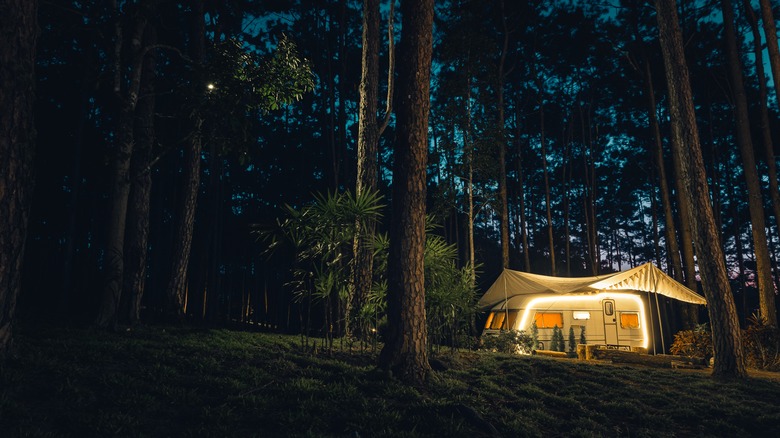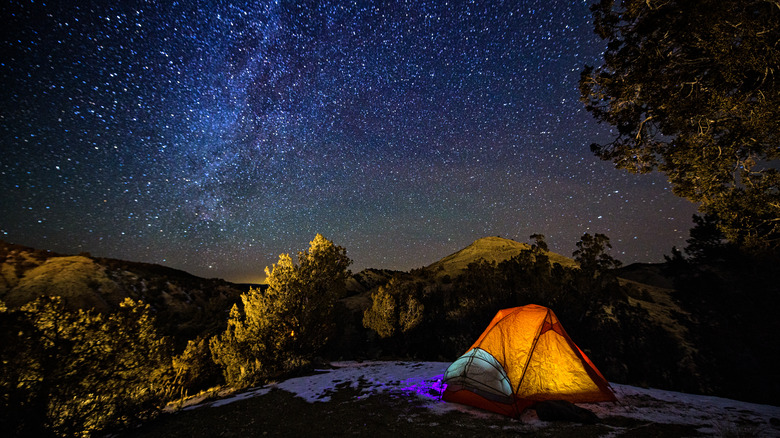An Unspoken Camping Etiquette Rule To Be Mindful Of Around Nearby Campers
We may receive a commission on purchases made from links.
When most people head out camping, they're not only looking to commune with nature but also searching for something rare these days: true darkness. That's why light pollution is one of the most overlooked, unspoken rules of campsite etiquette. Bright lanterns and string lights wrapped around every tree might look cozy to you, but to your neighbors, it's the outdoor equivalent of someone leaving the hallway light on all night.
Campgrounds are often some of the last places where people can enjoy natural darkness and see the night sky in its full glory. In places with designated Dark Sky status, like parts of Utah's public lands or this top stargazing destination in Arizona, protecting those stargazing conditions is a big deal. Even in less regulated areas, most campers will appreciate being able to fall asleep to stars, not spotlights.
So, to be respectful when sharing a campsite, use just enough light to move around safely — and no more. That means switching to red lights at night, shielding lanterns, and turning off any non-essential lights once it's time to wind down. We're not saying you need to camp in total blackout; just be considerate about how much light you use and where. Someone camping nearby might be trying to photograph the Milky Way — or just get some sleep.
Turn the lights down, and your neighbors will thank you
Light pollution can be problematic for more than just blocking the stars. It affects circadian rhythms, disturbs wildlife, and can make nearby campers feel like they've pitched a tent next to a parking lot. For one, bright lights attract bugs, which no one wants. And for animals, light pollution creates confusion — especially during migration. Many studies have shown how animal behavior and entire ecosystems can be negatively affected by light pollution. It can even stress out plants.
Of course, you'll need to use some lighting when camping. Headlamps, LED lanterns, and carefully aimed lighting all have their place — especially for safety. But consider your setup. Point lights downward (remember this while using flashlights, too), avoid leaving them on all night, and choose dimmable lanterns or lights that offer red and amber options, such as this Yonktoo LED Camping Lantern. Also, if you have security lights for your RV or camper, consider setting them up with a motion sensor so they only activate when needed.
It's also good practice to test your lighting at night from a distance. Walk away from your site, and see how far the light carries. If you can see it glowing from 100 feet away, chances are it's lighting up your neighbor's tent, too. If you arrive in the evening, the headlights on your vehicle can flood other people's campsites right at eye level, so turn them off as soon as you reach the campsite. A little thoughtfulness goes a long way toward creating a more peaceful campground vibe. And if you're not sure where to go to get away from light pollution, check out our roundup of spectacular places to camp under the stars in the U.S.

